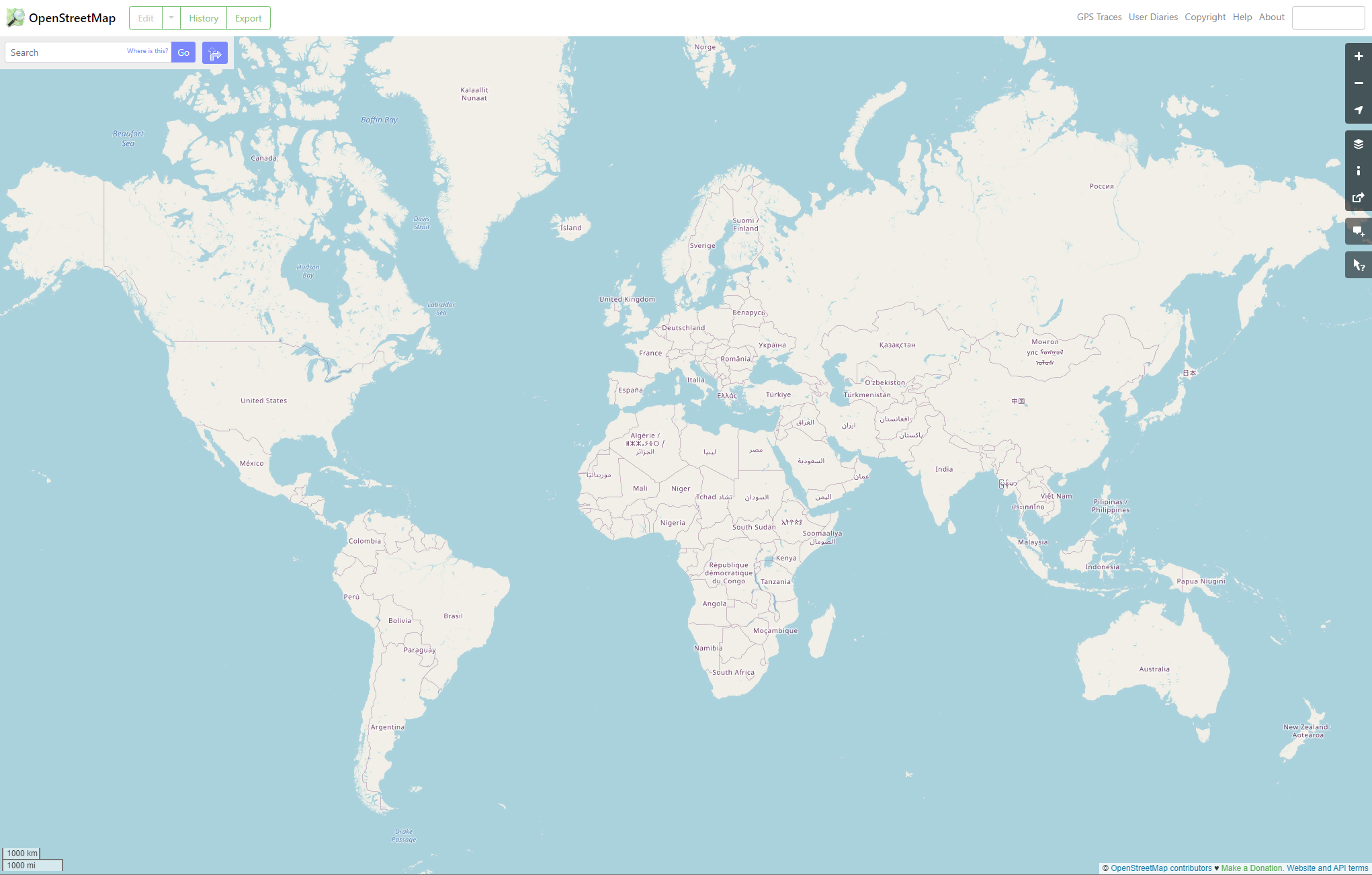Two decades ago, I knew that a wiki map of the world would work. It seemed obvious in light of the success of Wikipedia and Linux. But I didn't know that OpenStreetMap would work until much later. I was showing someone new to OSM how to add data to the map. I would ask for a place they knew well, zoom in to that area and then find something to fix. The key was to get a quick win by showing the map before and after they had made it better. Get a little shot of dopamine for making the world a slightly better place. This person asked to look at Cuba. This presented a challenge, and I had to manage expectations. OpenStreetMap at the time had okay maps of major Western countries but my expectation, as I explained to them, was that Cuba would be a blank empty slate. Cuba was doubly tricky not just because of economic factors that limit peoples free time and ability to contribute to open projects, but also the internet was (effectively if not actually) banned and computers illegal. Zooming in to Cuba that day was the last time I was surprised by OSM, and when I stopped worrying about it working as a project: Cuba had roads, parks, hospitals and everything else imaginable already mapped.

OpenStreetMap has grown exponentially or quadratically over the last twenty years depending on the metric you’re interested in. My involvement has waxed and waned like soul mates oscillating between rapture and, inevitably, wanting the best for each other in our post-relationship new lives. The story isn’t so much about the data and technology, and it never was. It’s the people. Like John Boyd said, it’s the people then the ideas and then the technology. Not the other way around.
 People
People
The people that wanted to map just weren’t in the existing camps by definition. They largely didn’t work in geography at all. They just wanted a way to make a map better. Governments, universities and companies had lists of reasons why public mapping wasn’t possible, but no actual solution.
 Ideas
Ideas
Allowing volunteers to edit a map in 2004 was simply anathema and bordering on unthinkable. Map data was supposed to be controlled, authorized and carefully managed by a priesthood of managers.

 Technology
Technology
For those not in the industry, you might not know that OSM essentially did the opposite of what academic and the leading technology platforms at the time advocated. It needed a data model designed for volunteers not paid editors. So, we did tags not ontologies, and nodes and ways, not web feature service.
> "I do not know what I may appear to the world, but to myself I seem to have been only like a boy playing on the seashore, and diverting myself in now and then finding a smoother pebble or a prettier shell than ordinary, whilst the great ocean of truth lay all undiscovered before me." - Newton
OpenStreetMap managed to map the world and give the data away for free for almost no money at all. It managed to sidestep almost all the problems that Wikipedia has by virtue of only representing facts not opinions. The project itself is remarkable. And it’s wonderful that so many are in love with it.
For me though, I’m far more fascinated with what are the other pebbles on the beach. What else can we make for almost no money that will radically change the world for the better? If OpenStreetMap is a medium, what is the message? For me it’s that we can go from nothing to something, or zero to one. Many of us love critiquing something that exists or maybe even improving it. But, my boyish naiveté was assuming that there were lots of other people out there also trying to build new things. Tautologically this simply can’t be true, for if everyone was making new things for any period of time we’d be much further along the various technological curves.
What stops us from doing new things? There seems to be a million reasons and two opposing forces keeping us in inaction: fear and vanity. Fear of actually building something and showing it to people will push you from one side, and vainly falling in love with the idea itself will pull you the other way. These forces will perfectly balance like the tides. You’ll be stuck in the gravity well of some dead Lagrange point neither executing on the idea nor killing it. Not everyone has ideas, but if you do, I encourage you to go do the thing. When you do the thing, most likely you’ll have to kill it. New things tend to not work, or you have to change them drastically. OpenStreetMap’s first 4 or so major versions were all radically different from each other and relied on feedback from the world to make it something that would work. Killing all the new things means you have to try many of them. This too is reflected in OSM, where I actually started about ten ideas at the time. OSM took off. One was taken over. The rest were strangled to death by reality meeting vanity.
So, celebrate all that we have achieved. It’s been amazing. And then please turn the wheel and look to windward and consider how to kill it, by making something new or better.

 Remember these 3 key ideas for your startup:
Remember these 3 key ideas for your startup:
- Embrace Volunteerism and Community: Just like OpenStreetMap thrived on volunteer contributions, your startup can leverage community engagement. Encourage your users to contribute and improve your product. This not only builds a loyal user base but also enhances your product organically. For more insights, check out how to brand yourself as a remote company.
- Innovate Against the Grain: OpenStreetMap succeeded by doing the opposite of what was advised by academia and leading tech platforms. Don’t be afraid to challenge conventional wisdom. Sometimes, the most disruptive innovations come from thinking differently and taking unconventional paths. Learn more about how to effectively assign tasks to team members.
- Iterate and Adapt: OpenStreetMap’s initial versions were drastically different from each other. Be prepared to pivot and adapt based on feedback. Iteration is key to finding what works. Don’t be afraid to kill ideas that don’t work and focus on refining the ones that do. Discover ways to replicate the office in a remote work setup.
Edworking is the best and smartest decision for SMEs and startups to be more productive. Edworking is a FREE superapp of productivity that includes all you need for work powered by AI in the same superapp, connecting Task Management, Docs, Chat, Videocall, and File Management. Save money today by not paying for Slack, Trello, Dropbox, Zoom, and Notion.
For more details, see the original source.






